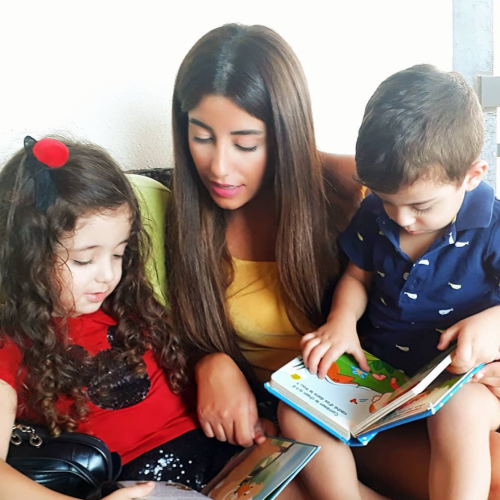
Before a newborn baby can form words, before he has the strength to lift his own head, before he’s even had time to adjust to life outside the womb, he is placed on a molded plastic restraint board. His arms and legs are strapped down. The room is sterile, humming with fluorescent light. The air is cold.
There is no explanation, no comfort, no voice of reassurance—only the gloved hands of a physician and the sound of metal tools being arranged. The procedure hasn’t even started, and yet his body instinctively senses danger.
Then, without anesthetic, the cutting begins.
The baby screams. A sound that pierces not only the room, but should pierce the conscience of anyone present. And yet—no one intervenes. No one halts the blade. The pain is not accidental—it is anticipated.
The Normalization of Suffering
We’ve become disturbingly good at minimizing the pain of babies. We say, “He won’t remember.” We call it “just a snip.” We act as though infants are immune to trauma because they can’t speak or articulate what they’re experiencing.
But their nervous systems are speaking volumes.
The science is clear: infants feel pain—acutely. Their nervous systems are hypersensitive, not underdeveloped. And the trauma of circumcision doesn’t vanish with time; it embeds itself in the brain, shaping the way the child’s nervous system responds to stress, safety, and intimacy for years to come.
Just because someone can’t verbalize their pain doesn’t mean they aren’t feeling it. In fact, that may be the most dangerous assumption of all.
The Lie That It’s Quick and Harmless
Circumcision is often marketed as a routine procedure—quick, simple, and no more distressing than a diaper change. But ask any nurse who’s ever worked in a NICU, and they’ll tell you: the cries of a baby undergoing circumcision are not ordinary.
They are high-pitched. Panicked. Raw. And unforgettable.
These are not the cries of minor discomfort. They are the sounds of a human being in unbearable pain, whose body is being violated, whose trust is being shattered before it has even fully formed.
The phrase “he won’t remember” isn’t a justification—it’s a deflection. A child may not retain the memory in words, but his body will remember. His brain, flooded with cortisol and adrenaline, will remember. His subconscious, shaped by this early trauma, will carry the imprint of what was done.
No Anesthesia. No Excuse.
Most circumcisions in the United States are performed without general anesthesia.
The reason is not that the pain doesn’t warrant it—but that anesthetizing an infant carries risk. Rather than reconsidering whether the procedure should be done at all, we’ve accepted a horrifying workaround: proceed with the surgery, fully aware of the pain, and simply endure the baby’s screams as background noise.
We would never pull an adult’s tooth without numbing it. We would never perform even minor surgery without anesthesia on anyone else. Yet we do it to babies because they’re too small to resist, too new to protest, too voiceless to sue.
The result? A society where it is not only legal, but common, to perform genital surgery on a baby who is wide awake.
The Dangerous Silence of Neurogenic Shock
Sometimes during circumcision, a baby stops crying—not because the pain has passed, but because his nervous system is overwhelmed.
This phenomenon is called neurogenic shock. It’s the body’s survival response to inescapable trauma. The baby goes limp. His eyes may look vacant. His body may stop resisting. And this silence is often misread as calmness or tolerance.
But what it really signals is shutdown. It is the body’s emergency brake—its final, desperate act of self-protection.
That a newborn would need this level of dissociation should disturb us deeply. Yet it’s misunderstood as evidence that the procedure wasn’t so bad.
We Treat Screaming Like a Form of Consent
In any other surgical context, a scream is a red flag—an emergency, a cry for immediate intervention. But when an infant screams during circumcision, it’s dismissed. It’s treated not only as expected, but acceptable.
We’ve created a loophole in medical ethics: if the patient is a baby boy, we pretend pain doesn’t count. We act as though his suffering is part of some unspoken masculine rite of passage, something he must endure before he even learns how to hold a bottle.
And when he stops screaming? We say he did “great.”
What he actually did was survive a trauma his body will spend years trying to reconcile.
The Psychological Wounds We Don’t Acknowledge
Early trauma—especially pain experienced without explanation, relief, or escape—shapes a child’s brain in profound ways.
We know this from studies of institutional neglect, from attachment theory, from neuroscience. The infant brain is building a roadmap of the world, and circumcision teaches one very specific lesson early on: that the people you depend on the most may not protect you when it matters.
This is not just poetic metaphor—it’s neurobiological fact.
The amygdala stores fear. The hippocampus encodes threat responses. And when a baby is strapped down, cut, and offered no relief, his brain absorbs a lesson it will revisit over and over again, often without conscious memory to explain it.
This can influence sleep patterns. Trust. Sexuality. Stress reactivity. It’s not rare. It’s not fringe. It’s science we choose not to see—because seeing it would demand change.
What If It Were a Girl?
Let’s imagine, for a moment, that this article was about baby girls.
Imagine a doctor removing part of an infant girl’s genitals—without anesthesia, without medical necessity, and without her consent. Imagine it being called “normal.” Imagine hospitals profiting from it. Imagine celebrities defending it as cultural, or doctors describing it as clean and healthy.
Now ask yourself: how would you feel reading that?
Outrage? Horror? A pit in your stomach?
Good. That feeling is your conscience working. Now ask why those feelings disappear when the subject is a boy.
Culture Is Not an Ethical Shield
One of the most persistent justifications for circumcision is culture.
People say, “It’s part of our identity,” or “My religion requires it,” or “It’s been done this way for generations.” But cultural precedent cannot excuse the violation of bodily autonomy. It cannot override the right of a human being—no matter how small—to decide what happens to their own body.
Culture evolves. We have moved beyond foot binding, lobotomies, and corporal punishment. We can also move beyond this.
Ritual should never involve pain inflicted on the helpless. If our traditions require blood, maybe it’s the tradition that needs rethinking—not the baby who bleeds.
We’re Failing to Fully Inform Parents
Most parents who consent to circumcision have never seen one performed. They don’t know what the instruments look like. They’ve never heard the scream. They trust that their doctor wouldn’t offer a procedure that wasn’t necessary.
But the truth is: they’re not being given full information.
They’re not told about the anatomy of the foreskin, or that it protects the head of the penis and plays a role in sexual function. They’re not told about the pain. They’re not told that the American Academy of Pediatrics does not recommend routine circumcision for all infants. They’re told it’s “standard,” and that’s often enough.
This lack of informed consent is not just negligent. It’s systemic gaslighting.
Let This Be the Generation That Stops
We are not powerless. We are not trapped by the decisions of past generations. We can question what was done to us, and we can choose to do better for the next.
Stopping circumcision isn’t about shaming parents. It’s about loving babies more than we love being right.
It’s about recognizing that human rights don’t start at age 18—or even at age one. They begin at birth.
And when a baby screams in a medical setting, the appropriate response is to stop, not rationalize.
Break the Silence. End the Harm.
Every major shift in human rights began with discomfort. This one is no different.
If you’ve made it this far and your stomach is turning, your throat is tight, your heart is heavy—that’s a sign that your empathy is intact. Let it guide you.
Talk about this. Share this article. Watch the videos people are afraid to watch. Listen to the voices of those who were harmed. Don’t look away.
Because silence has protected circumcision for far too long. It’s time to let truth do the talking.





No Comments